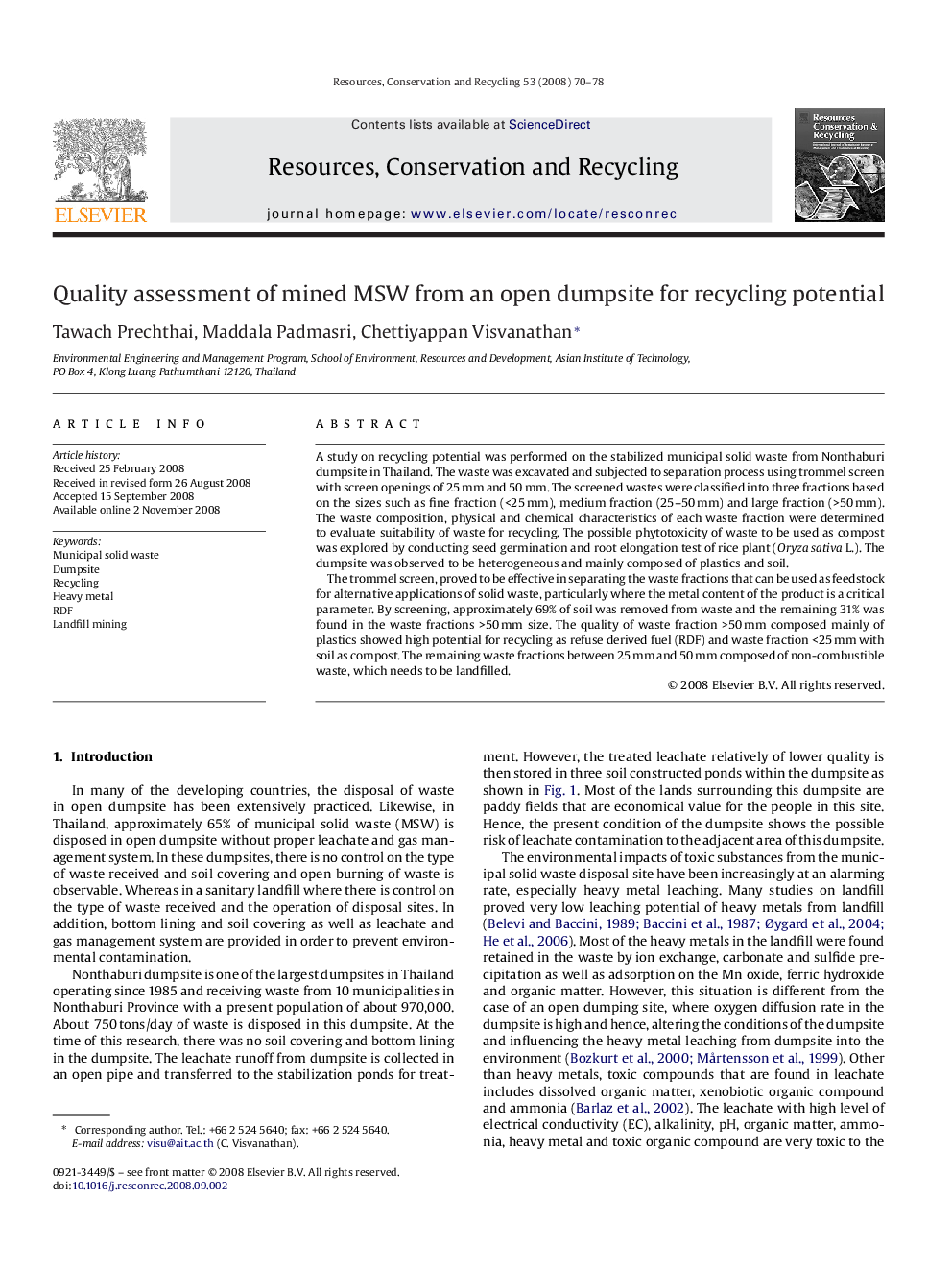| Article ID | Journal | Published Year | Pages | File Type |
|---|---|---|---|---|
| 1063701 | Resources, Conservation and Recycling | 2008 | 9 Pages |
A study on recycling potential was performed on the stabilized municipal solid waste from Nonthaburi dumpsite in Thailand. The waste was excavated and subjected to separation process using trommel screen with screen openings of 25 mm and 50 mm. The screened wastes were classified into three fractions based on the sizes such as fine fraction (<25 mm), medium fraction (25–50 mm) and large fraction (>50 mm). The waste composition, physical and chemical characteristics of each waste fraction were determined to evaluate suitability of waste for recycling. The possible phytotoxicity of waste to be used as compost was explored by conducting seed germination and root elongation test of rice plant (Oryza sativa L.). The dumpsite was observed to be heterogeneous and mainly composed of plastics and soil.The trommel screen, proved to be effective in separating the waste fractions that can be used as feedstock for alternative applications of solid waste, particularly where the metal content of the product is a critical parameter. By screening, approximately 69% of soil was removed from waste and the remaining 31% was found in the waste fractions >50 mm size. The quality of waste fraction >50 mm composed mainly of plastics showed high potential for recycling as refuse derived fuel (RDF) and waste fraction <25 mm with soil as compost. The remaining waste fractions between 25 mm and 50 mm composed of non-combustible waste, which needs to be landfilled.
